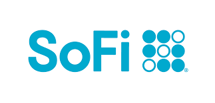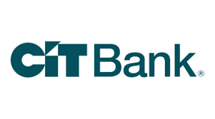When life throws you a curveball -- a medical bill, job loss, or major home repair -- you need an emergency fund that's ready to go. The best place to keep that money is somewhere that's safe and accessible while earning a solid interest rate.
I've rounded up a few of our top picks that balance security with great yields. Keep reading to see my picks for the best places to keep your emergency fund in 2026.
- Our team of experts assessed 100+ banking institutions
- We evaluate all banking institutions across the same 4 key criteria: annual percentage yield (APY), brand reputation, fees and minimum requirements, and additional perks
- Our bank ratings are never influenced by our advertising partners
- We strictly feature products that offer federal insurance and high customer satisfaction, keeping our recommendations unbiased
Our top places to keep your emergency fund picks
Best places to keep your emergency fund
Best for high APY with flexibility: SoFi Checking and Savings (Member FDIC)
SoFi Checking and Savings
On SoFi's Secure Website.

On SoFi's Secure Website.
Earn up to 4.00% Annual Percentage Yield (APY) on SoFi Savings with a 0.70% APY Boost (added to the 3.30% APY as of 12/23/25) for up to 6 months. Open a new SoFi Checking and Savings account and pay the $10 SoFi Plus subscription every 30 days OR receive eligible direct deposits OR qualifying deposits of $5,000 every 31 days by 3/30/26. Rates variable, subject to change. Terms apply at sofi.com/banking#2. SoFi Bank, N.A. Member FDIC.
- Competitive APY on both Savings and Checking
- No monthly account fee
- Welcome bonus up to $300 (direct deposit required)
- ATM access
- Unlimited number of external transfers (up to daily transaction limits)
- FDIC insured (up to $3M with opt-in to SoFi Insured Deposit Program)
- Early access to direct deposits
- Tools to help you track savings goals
- Combo account only; no stand-alone savings or checking
- Maximum Savings APY requires direct deposit
- No branch access; online only
- Overdraft protection requires monthly direct deposit minimum
For those who plan to set up direct deposit with their new account, we think SoFi Checking and Savings (Member FDIC) is hard to beat. Not only does this savings account offer a strong APY, but the linked checking account earns an above-average rate, too -- which is a rare perk. Plus, new customers earn a bonus of up to $300 with eligible direct deposit. Frankly, it's the kind of combo that could make it worthwhile to switch banking relationships.
SoFi®'s combo checking and high-yield savings accounts gives you access to all your money in one place, with up to 4.00% annual percentage yield (APY) when you set up direct deposit or make qualifying monthly deposits. It's FDIC insured, has no account fees, and includes features like automatic savings buckets.
As a SoFi® user myself, I can also vouch for the interface's intuitiveness and ease of use. I'd definitely recommend it to a friend.
Best for highest max APY: Axos ONE®
Axos ONE®
On Axos Bank's Secure Website.

On Axos Bank's Secure Website.
- Earn a competitive APY on checking and savings
- Pay no monthly maintenance or account fees
- No cap on how much you can save
- Access to fee-free ATM network
- Extra conditions required to earn the advertised rate
- No physical branches for in-person help
The Axos ONE® bundle makes your money work overtime – all under one roof. Meet the direct deposit and balance requirements, and you’ll earn up to 4.31% APY on savings and up to 0.51% APY on checking, some of the highest rates we’ve seen lately. There are no physical branches, but you can still access cash easily through a network of over 95,000 fee-free ATMs. It’s a simple, high-reward setup that actually pays off.
The Annual Percentage Yield (APY) is accurate as of 12/2/2025. The base and promotional interest rate and corresponding APY for Axos ONE® Checking is variable and is set at our discretion. The base and promotional interest rate and corresponding APY for Axos ONE® Savings is variable and is set at our discretion. Axos ONE® Savings is a tiered variable rate account. Axos ONE® Checking is a non-tiered variable rate account. Interest rates may change as often as daily without prior notice. Fees may reduce earnings.
Promotional terms and conditions are subject to change or removal without notice. Incentive may be taxable and reported on IRS Form 1099-MISC. Consult your tax advisor. After the accounts are opened, the amount of incentive earned will depend on meeting the additional requirements outlined below.
The Axos ONE® Checking account will earn a base rate of 0.00% APY. The Axos ONE® Savings account will earn a base rate of up to 1.00% APY.
Axos ONE® accounts are eligible to receive a promotional APY for each statement cycle where the promotional criteria are met during the Qualification Period. To receive the promotional APY on both Axos ONE® Checking and Axos ONE® Savings, the Axos ONE® Checking account must meet both of the requirements in either Option 1 or Option 2 below during the Qualification Period:
Option 1
- Your Axos ONE® Checking account has received monthly qualifying direct deposits of at least $1,500 in total.
- The average daily balance of your Axos ONE® Checking account is at least $1,500.
Option 2
- Your Axos ONE® Checking account has received monthly qualifying deposits of at least $5,000 in total.
- The average daily balance of your Axos ONE® Checking account is at least $5,000.
If both of the requirements in either Option 1 or Option 2 above are met during the Qualification Period:
- The Axos ONE® Checking account will earn a promotional rate of 0.51% APY for the statement cycle in which the requirements are met.
- The Axos ONE® Savings account will earn a promotional rate of up to 4.31% APY for the statement cycle in which the requirements are met.
The Qualification Period begins on the first business day of the month and runs through the 25th of the month. If the 25th of the month is followed by a non-business day, the average daily balance will be calculated including the following non-business day(s). Any qualifying deposits or qualifying direct deposits received after the 25th of the month will count toward the next Qualification Period. The Qualification Period for new accounts will begin on the day the account is approved. New accounts opened on or after the 25th of the month will be eligible to earn the promotional APY starting in the following month.
A direct deposit is an electronic deposit of your paycheck or government benefits, such as Social Security, Disability, etc. International paychecks, international government benefits, other deposits (i.e., online banking transfers, ATM and mobile check deposits, etc.), or person-to-person payments are not considered a direct deposit.
Qualifying deposits only include deposits from the following eligible sources: (i) ACH transfers from external accounts, (ii) inbound wire transfers from external accounts, (iii) check deposits. Qualifying deposits do not include: (i) transfers internal to the bank (i.e., transfers between an account holder's Checking and/or Savings account), (ii) interest payments, (iii) promotional bonuses, (iv) credits, reversals, and refunds.
Both accounts must be in an open and active status on the 25th of the month and on the date the interest is paid to receive the promotional APY for that statement cycle. If either account closes during the Qualification Period, neither account will be eligible to earn the promotional APY for that statement cycle. Account transactions may take one or more business days from the transaction date to post to the account.
Axos Bank's bundled checking and savings account, Axos ONE®, comes with an incredibly high max APY if you can hit certain requirements.
You'll also get:
- No account fees or minimums
- Access to paychecks up to two days early
- FDIC insurance up to $250,000, just like traditional bank accounts
Plus, since Axos ONE® is a bundle, you'll have instant access to your cash through the checking portion of the account.
Best for high APY with monthly deposits: LendingClub LevelUp Savings
LendingClub LevelUp Savings
On LendingClub's Secure Website.

On LendingClub's Secure Website.
- Competitive APY
- No fees
- Easy ATM access
- Unlimited number of external transfers (up to daily transaction limits)
- Requires you to make monthly deposits to earn the best APY
- ACH outbound transfers limited to $10,000 per day for some accounts
- No branch access; online only
The LendingClub LevelUp Savings account has a lot to offer. At the top of the list is its high APY, though you must deposit monthly to earn the best rate. Next is zero account fees, a strong and straightforward perk. Finally, you get a free ATM card, which you can use to withdraw from thousands of ATMs nationwide. Interested? You can open an account with $0.
LendingClub is another top option, offering a strong APY when you deposit at least $250 per month. Even if you can't swing that, you'll still get a pretty solid return, meaning this account is great no matter how you're depositing your cash.
You'll also enjoy no fees or account balance requirements, all with no additional hoops to jump through. Yes, it's really that simple.
Best for top APY on larger account balances: CIT Platinum Savings
CIT Platinum Savings
On CIT's Secure Website.

On CIT's Secure Website.
- Competitive APY
- No account opening or maintenance fees
- Unlimited number of external transfers (up to daily transaction limits)
- FDIC insured
- Interest compounds daily so your money can grow a bit faster
- Balance requirement for maximum APY
- No branch access; online only
CIT Platinum Savings is a no-frills high-interest savings account that offers one of the highest APYs we've found available today -- as long as you can maintain a $5,000 minimum balance. Plus, customers can make an unlimited number of transfers and withdrawals each month (many savings accounts have monthly limits). And right now, you can also score a cash bonus of up to $300 when you open a new account with promo code PS2025 and fund it within 30 days. Terms apply.
Platinum Savings is a tiered interest rate account. Interest is paid on the entire account balance based on the interest rate and APY in effect that day for the balance tier associated with the end-of-day account balance. APYs — Annual Percentage Yields are accurate as of November 20, 2025: 0.25% APY on balances of $0.01 to $4,999.99; 3.75% APY on balances of $5,000.00 or more. Interest Rates for the Platinum Savings account are variable and may change at any time without notice. The minimum to open a Platinum Savings account is $100.
Based on comparison to the national average Annual Percentage Yield (APY) on savings accounts as published in the FDIC National Rates and Rate Caps, accurate as of December 15, 2025.
For complete list of account details and fees, see our Personal Account disclosures.
If you can keep $5,000 or more in savings, CIT rewards you with a valuable 3.75% APY (one of the highest available right now). There's no monthly fee, and you can link an external bank for easy transfers.
Just note that balances under $5,000 earn a much lower rate, so this option is best for larger balances. But if you can keep at least $5,000 in there, this is the way to go.
Best for all-around accessibility: Ally Money Market Account
Ally Money Market Account

- FDIC insured
- No monthly fee
- ATM access
- Checking privileges
- No cash deposits
- No branches
Ally's banking approach carries over to its money market account with a high APY and a focus on cutting routine account fees to $0, including monthly maintenance. What's more, there are no minimum balance requirements.
Ally's money market account earns interest and includes a debit card and check access, so your cash is always within reach. You'll earn a competitive 3.30% APY that makes sure your money's earning while it remains safe.
Ally is also known for its customer service and easy-to-use mobile app, ideal for handling a sudden expense on the go.
Our methodology for scoring banks and credit unions revolves around evaluating key aspects such as annual percentage yield (APY), brand reputation, fees and minimum requirements, and additional perks.
These criteria are weighted differently across various account types, ensuring a comprehensive assessment that reflects the competitive landscape and economic conditions.
We strictly feature products that offer federal insurance and high customer satisfaction, keeping our recommendations unbiased by advertiser influence. This robust evaluation process helps us generate balanced, reliable best-of lists that guide consumers to top financial products.
Learn more about how Motley Fool Money rates bank accounts.
Our methodology for scoring banks and credit unions revolves around evaluating key aspects such as annual percentage yield (APY), brand reputation, fees and minimum requirements, and additional perks.
These criteria are weighted differently across various account types, ensuring a comprehensive assessment that reflects the competitive landscape and economic conditions.
We strictly feature products that offer federal insurance and high customer satisfaction, keeping our recommendations unbiased by advertiser influence. This robust evaluation process helps us generate balanced, reliable best-of lists that guide consumers to top financial products.
Learn more about how Motley Fool Money rates bank accounts.
How to choose the right place to keep your emergency fund
Any emergency-fund option should come with a mix of accessibility, safety, and earning potential.
Your emergency fund should be in a liquid, low-risk account, ideally one that earns at or around 4.00% APY. You should also avoid locking it in a CD or investment account where you might face penalties if you have to pull out your money early -- after all, you want to have access to your emergency fund 24/7.
Why FDIC insurance matters
Every account on this list is FDIC insured (or NCUA insured in the case of credit unions), which protects your balance up to $250,000 per depositor, per institution. That's crucial for emergency savings, because you want absolute peace of mind.
Should I use a money market or savings account?
Both work well, but money market accounts tend to offer easier access with debit cards and check-writing. High-yield savings accounts might offer better rates, but may not have built-in spending tools.
-
Sources
FAQs
-
Most experts recommend putting three to six months of expenses in an emergency fund. If your job is unstable or you have dependents, you might consider saving more.
-
It's not ideal. CDs often charge early withdrawal penalties, and emergencies don't wait for maturity dates. Stick with liquid accounts instead.
-
Yes, as long as the account is separate and earns a decent rate. And be careful not to dip into it for non-emergencies.
-
Yes. Interest from savings or money market accounts is considered taxable income, even if you don't withdraw it.
Motley Fool Stock Disclosures
Ally is an advertising partner of Motley Fool Money. The Motley Fool has no position in any of the stocks mentioned. The Motley Fool has a disclosure policy.